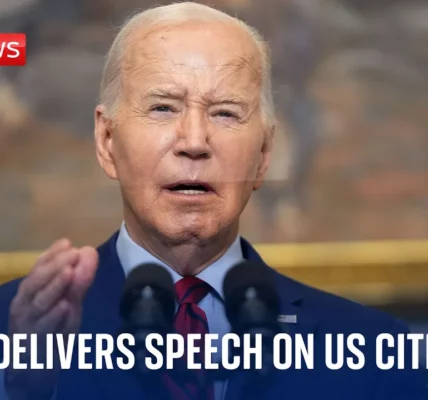Nigel Farage Criticized by Keir Starmer Over Leadership After Controversial Comments

This article delves into the recent political controversy sparked by remarks made by a Reform Party campaigner, the responses from key political figures, and the broader implications for leadership in political discourse.
Introduction
The political landscape in the UK has been shaken by recent events involving Nigel Farage’s Reform Party. Following a campaigner’s use of a racial slur against Prime Minister Rishi Sunak, significant backlash has ensued. This incident has raised crucial questions about leadership, accountability, and the overall tone set by political figures in the country. Keir Starmer, the leader of the Labour Party, has taken a strong stance against Farage’s leadership style, indicating that effective leadership requires more than mere denouncement of offensive behavior—it demands proactive measures to establish acceptable standards within political dialogue.
The Incident and Initial Reactions
The controversy began when a campaigner for the Reform Party used a racial slur directed at Rishi Sunak. This incident was part of an undercover investigation by Channel 4 News, which has led to widespread criticism of Nigel Farage’s leadership. Immediately after the comments became public, Farage attempted to dismiss the situation, labeling it as a political setup rather than addressing the substance of the comments.
Farage’s Response
Initially, Farage’s reaction was defensive. He claimed that the individual responsible for the comments was a paid actor, a statement that Channel 4 News and the individual in question have both denied. This shift in narrative highlights a reluctance to take responsibility for the culture within his party.
Rishi Sunak’s Standpoint
Prime Minister Rishi Sunak has openly condemned the use of racist language, stating that such remarks cause personal hurt and anger, particularly because they were directed at him. Sunak’s response underscores the importance of addressing racism in any form, especially within the political arena.
Importance of Addressing Racism
Sunak’s condemnation reflects a broader commitment among political leaders to combat racism. Key points from his stance include:
- The need for political leaders to unequivocally denounce racism.
- The impact of such comments on public perception and the political climate.
- The responsibility of leaders to create an inclusive environment.
The Role of Leadership in Political Discourse
Keir Starmer’s comments regarding Farage’s leadership highlight a critical aspect of political responsibility. Starmer asserted that it is not enough for leaders to distance themselves from controversial comments after they have been made; they must actively shape the culture of their party.
The Call for Stronger Leadership
Starmer emphasized that leadership involves setting standards and expectations for acceptable discourse. He stated:
- Leaders must define what is acceptable behavior within their parties.
- They should take decisive action against members who violate these standards.
- The importance of a clear manifesto that promotes inclusivity and respect.
Wider Implications for Political Parties
The incident has raised concerns about the extent to which intolerant views are tolerated within politics. Starmer pointed out that the Labour Party must also take a firm stance against such rhetoric, as it is not limited to a single party. This sentiment is echoed by former Labour leader Neil Kinnock, who has called for a more robust condemnation of these views.
Addressing Nationalism in Political Rhetoric
Kinnock’s warnings about the rise of nationalist sentiments within the Reform Party suggest a need for vigilance among all political factions. Key considerations include:
- The potential consequences of ignoring nationalist rhetoric.
- The role of all political parties in fostering an inclusive political environment.
- Strategies for combating extreme views in political discourse.
Conclusion
The recent controversy surrounding Nigel Farage and the comments made by a Reform Party campaigner serve as a wake-up call for political leaders across the spectrum. Effective leadership is not merely about denouncing unacceptable behavior but about actively shaping the political narrative to foster respect and inclusivity. As leaders like Rishi Sunak and Keir Starmer demonstrate, there is an urgent need for accountability and clear standards in political dialogue. It is crucial for all parties to engage in self-reflection and take concrete steps to ensure that the political environment is free from intolerance. For more insights into political leadership and accountability, explore our related articles on [Leadership in Politics](#) and [Addressing Racism in Political Discourse](#).
“`




